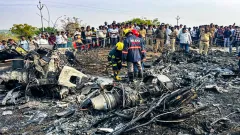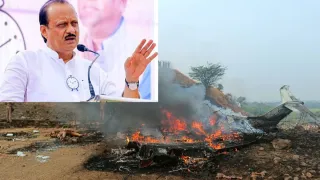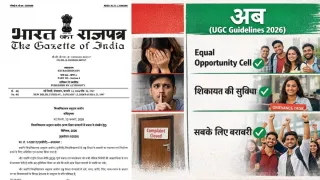The Election Commission of India (ECI) is set to announce the first phase of a pan-India Special Intensive Revision (SIR) of electoral rolls on Monday, covering an estimated 10-15 states and Union Territories. The initial wave is expected to include poll-bound states such as West Bengal, Tamil Nadu, Kerala, Assam and Puducherry. Sources inside the commission say that some states will be excluded from this first phase — including those where local body elections are imminent (such as Maharashtra) or where harsh winter/snow conditions prevail (such as Jammu & Kashmir, Himachal Pradesh, Uttarakhand, Sikkim and Ladakh). As one analyst puts it, the last such thorough revision was nearly two decades ago, making this a major overhaul of the voter-list machinery.
The decision comes amid heated political undercurrents. Ahead of elections in Tamil Nadu and elsewhere, the ruling parties in those states have expressed alarm, accusing the central government and the ECI of engineering a roll-revision that might remove working-class, minority, SC/ST or female voters. The ECI, on its part, emphasises the exercise is about accuracy, integrity and constitutional duty — rather than electoral advantage.
What is the SIR & why now
The Special Intensive Revision (SIR) is distinct from the routine ‘summary’ or annual roll-revisions. Under SIR, each existing elector may be required to re-submit an enumeration form, and in many cases, provide documentary proof of age, residence and citizenship. The ECI’s June 24 notification says the last full scale intensive roll-revision in most states dates back to 2003, and major demographic shifts (migration, urbanisation) warrant a fresh deep-clean.
In its earlier rollout in Bihar, the SIR involved house-to-house enumeration, submission of forms by nearly all electors, disposal of claims/objections, and final publication of revised rolls well ahead of upcoming polls. The same template is now being adapted for a national scale.
Phased rollout & states in the first wave
According to ECI sources, the first phase will cover 10-15 states/UTs and will exclude states where local body elections are pending or where winter/snow hamper field work. For instance, Maharashtra is omitted for now; J&K, Himachal, Uttarakhand, Sikkim and Ladakh are planned for later waves.
The states likely in round one include West Bengal, Tamil Nadu, Kerala, Assam, Puducherry and other major electorates. These choices are politically significant given upcoming assembly elections and large voter bases. The ECI has indicated that the qualifying date and other technical details will be revealed at the press meet.
Eligibility, documentation & verification process
The SIR will operate with special enumeration forms, house-to-house verification by Booth-Level Officers (BLOs) and mapping of existing electors against prior rolls. In many cases, those who registered after 2003 must furnish supplementary proof of age, residence and parentage.
Document requirements have become a political flashpoint: the ECI clarified that simply producing an Aadhaar card, EPIC (voter-ID) or ration card may not suffice to establish citizenship/eligibility under the SIR framework. This has triggered concerns about potential disenfranchisement of marginalised communities.
Political reactions & concerns
Opposition parties in states targeted in the first wave have voiced alarm. In Tamil Nadu, for example, the DMK has accused the BJP-led government of using SIR to remove names of working-class, minority, SC/ST and women voters ahead of polls — claiming the process is designed to secure victory rather than ensure accuracy.
On the other side, some observers endorse the SIR as essential to safeguard democratic integrity. Senior Congress MP Shashi Tharoor, for instance, publicly backed the ECI’s national revision drive, calling current rolls “not perfect”.
Timeline, field machinery & administrative readiness
The Bihar SIR exercise suggests that each phase may span about three months: enumeration → claims/objections → final roll publication. For the pan-India rollout, the ECI has already held meetings of all state CEOs (e.g., Sept 10 conference) to assess field readiness, technological infrastructure and mapping of electors.
In many states (for example Odisha) preparations include boosting training for DEOs/EROs/BLOs, verifying booth-level data, increasing polling booths (Odisha plans to increase booths from ~38,000 to 45,000), and replacing duplicate EPIC numbers.
Implications & what to watch
For millions of Indian voters — especially young first-time electors, migrants, women, and marginalised groups — the SIR could mean changes in their registration status. The removal of duplicate, deceased or shifted names might reduce inflated registers, but critics warn of errors and exclusion. In Bihar, around 65 lakh names were removed in the SIR process.
From an electoral-political angle, the timing and demographic focus of the SIR are significant: assembly elections are upcoming in several large states included in phase one, and updated rolls could influence seat alignments, turnout dynamics and party strategies. The ECI says its goal is clean, error-free rolls — but all eyes will be on outcomes.
Judicial & constitutional oversight
The Supreme Court has already been engaged: in July it declined to stay the Bihar SIR, calling the ECI a “constitutional body” with autonomy under Article 324. However, it asked the ECI to consider broadening acceptable documents for verification, reflecting concerns about disenfranchisement.
Legal challenges remain pending — petitions by citizen-groups allege that the SIR’s documentation requirements and deletion of names may violate Articles 14/19/21 of the Constitution (right to equality, vote and free movement). The ECI counters that it acts under Section 21 of the Representation of the People Act and must ensure only eligible citizens are on the roll.
Also Read: Cyclone Montha: IMD Warns Heavy Rain in South India























